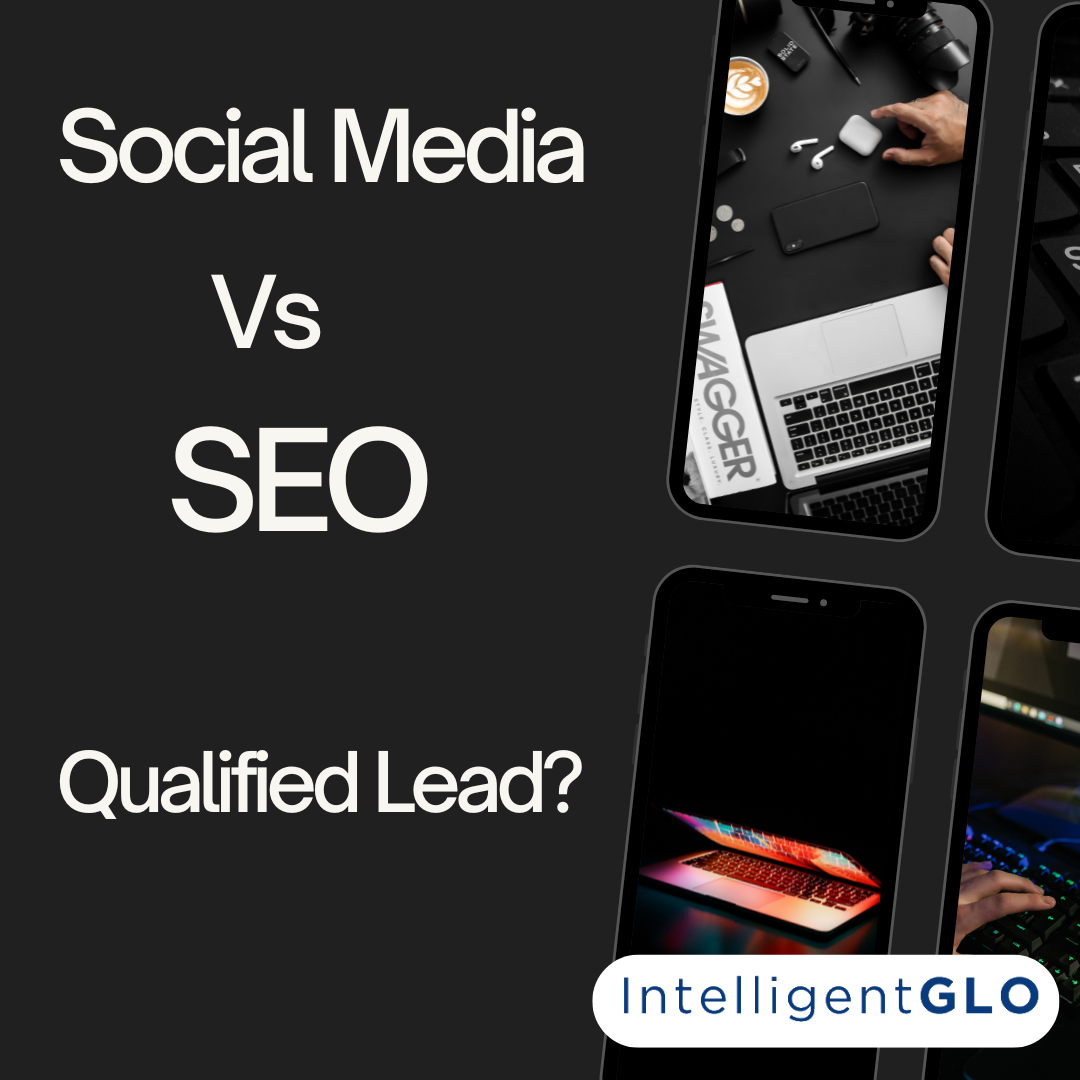Social Media vs. SEO: The Qualified Lead Showdown
A Marketer’s Guide to Lead Generation
In the ever-evolving landscape of digital marketing, the quest for qualified leads remains a top priority. But with so many tools and tactics at our disposal, the question arises: which reigns supreme, social media or SEO?
Both social media and SEO boast impressive lead generation capabilities, but they operate in fundamentally different ways. Understanding these nuances is crucial for crafting a winning strategy. Let’s delve into the strengths and weaknesses of each approach to determine how they can best serve your lead generation goals.
1-Social Media: The Power of Engagement and Relationships
Social media platforms like LinkedIn, Twitter, and Facebook provide a dynamic space to connect with potential customers. Its core strength lies in:
-Proactive Engagement:
Unlike SEO, which waits for users to come knocking, social media allows you to initiate conversations and build relationships. You can share valuable content, participate in industry discussions, and directly engage with leads, fostering trust and brand loyalty.
-Targeted Demographics:
Social media platforms offer sophisticated targeting options. You can drill down into specific demographics, interests, and behaviors to ensure your message reaches the right audience. This laser focus increases the likelihood of attracting qualified leads who are genuinely interested in your offerings.
-Brand Awareness and Storytelling:
Social media excels at building brand awareness. By creating engaging content that resonates with your target audience, you can establish yourself as a thought leader and a trusted source of information. This storytelling aspect helps you connect with potential customers on a deeper level, making them more receptive to your value proposition.
Social Media vs. SEO: The Qualified Lead Showdown
The Flip Side of the Social Media Coin
While social media boasts undeniable advantages, it’s not without limitations:
-Lower Purchase Intent:
Users on social media platforms are often in the browsing or awareness stage of the buyer’s journey. They might not be actively searching for a solution to their problem, making them less likely to convert immediately.
-Shorter Attention Spans:
Social media feeds are flooded with content, and users typically have short attention spans. This means your content needs to be concise, visually appealing, and instantly capture attention to stand out from the noise.
-Algorithm Dependence:
Social media platforms prioritize content that sparks engagement. This can make it challenging to organically reach a wide audience unless you invest in paid advertising or have a well-established following.
SEO: Attract Users Who Are Ready to Buy
Search Engine Optimization (SEO) focuses on improving your website’s visibility in search engine results pages (SERPs) for relevant keywords. This approach thrives on:
1-Higher Purchase Intent:
Users who conduct targeted searches are actively looking for solutions. By ranking high for relevant keywords, you position yourself in front of a highly qualified audience with a clear need. This translates to a better conversion rate compared to social media leads.
2-Long-Term Growth:
SEO is a marathon, not a sprint. While it takes time and effort to build organic rankings, the benefits are long-lasting. Once you establish strong rankings, you can enjoy a steady stream of qualified traffic without relying solely on paid advertising.
3-Credibility and Trust:
Ranking high in SERPs lends credibility to your brand. Users perceive websites at the top of search results as authoritative sources, making them more likely to trust your expertise and consider your offerings.
How to enhance sales? Read here
The SEO Caveats
However, SEO also comes with its own set of challenges:
1-Time-Consuming:
Building a strong SEO strategy requires ongoing effort. You need to consistently create high-quality content, optimize your website, and build backlinks. Results may not be immediate, demanding patience and persistence.
2-Constant Algorithm Updates:
Search engine algorithms are constantly evolving, making it crucial to stay updated on the latest best practices to maintain your rankings.
Competitive Landscape:
Ranking for competitive keywords can be highly challenging, especially in saturated industries.
The Verdict: It’s a Synergistic Dance, Not a Duel
So, which reigns supreme – social media or SEO? The truth is, there’s no clear winner. Both channels offer distinct strengths and cater to different stages of the buyer’s journey. The most effective approach lies in “combining the power of social media and SEO” into a cohesive digital marketing strategy.
Here’s how you can leverage the best of both worlds:
-Social Media to Fuel SEO:
Utilize social media platforms to drive traffic to your SEO-optimized website. Share informative and engaging blog posts, infographics, and videos that link back to your website. This increases website traffic and signals authority to search engines, potentially boosting your rankings.
-SEO to Amplify Social Media Reach:
Optimize your social media profiles with relevant keywords. This improves your discoverability in social media searches, potentially attracting new followers who
Read more about Social Media on Wikipedia here
Read more about SEO of website on Wikipedia here
#LeadGeneration #SocialMediaMarketing #SEOMarketing #DigitalMarketing




No comment